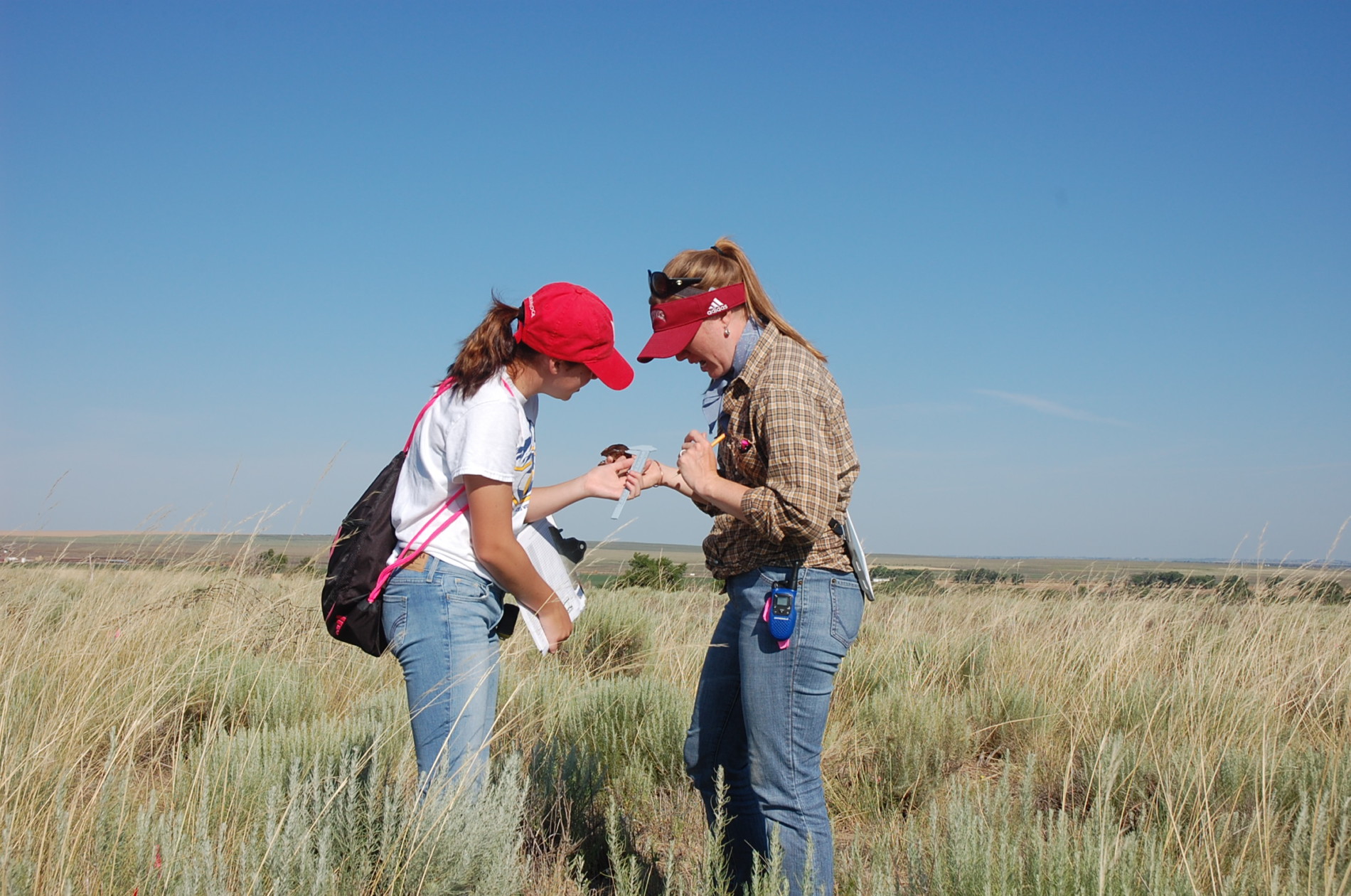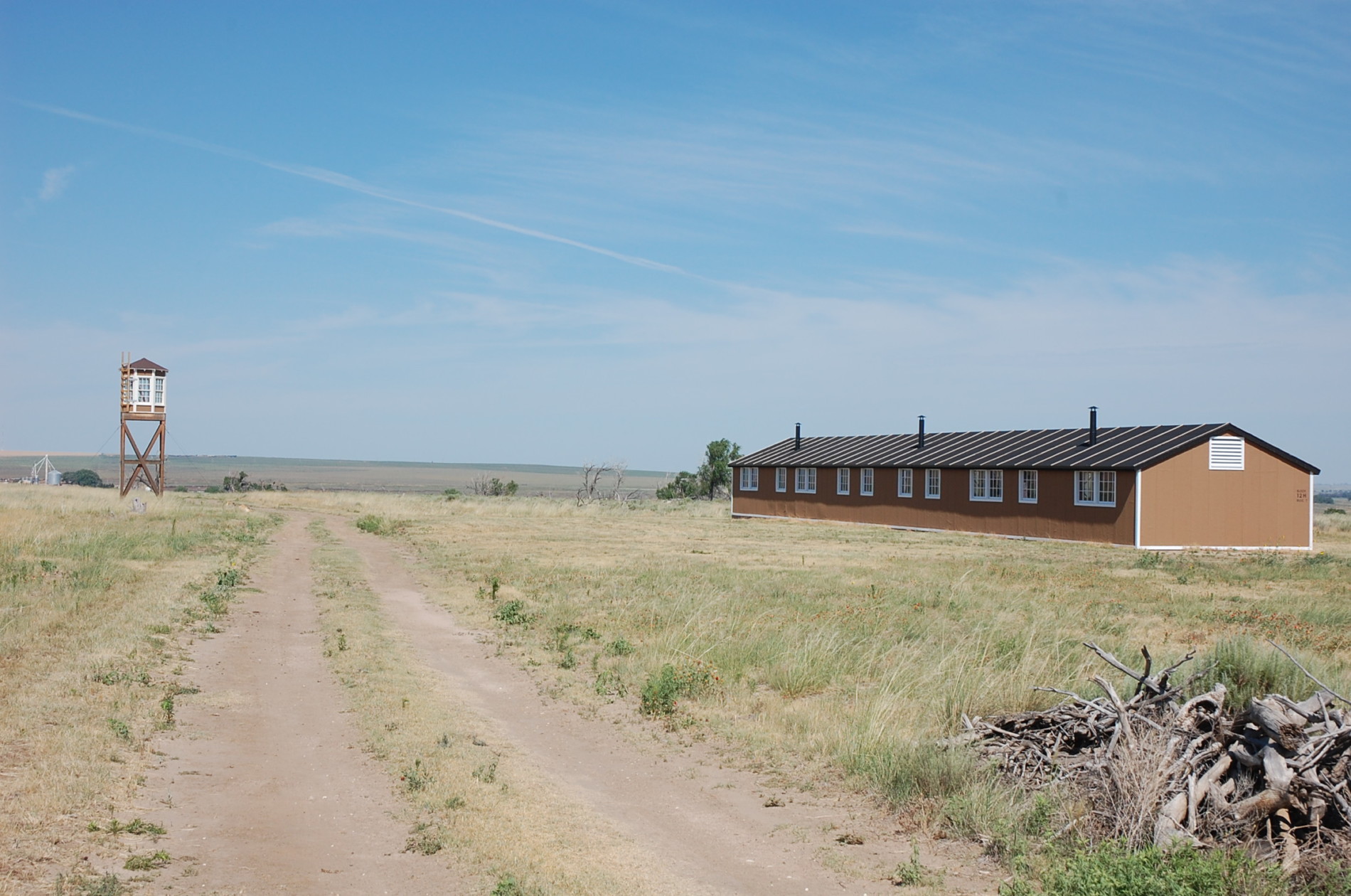Project Description
Overview
The Amache Archaeology and Heritage Management Field School is part of a long-term community collaborative project at Amache, a World War II-era Japanese American confinement camp in southeastern Colorado. This project provides a rare opportunity for students to work with survivors in synergistic investigations of the past and its meaning in the present at a National Historic Landmark. Working on-site and in the Amache museum, participants in the field school, gain hands-on experience in intensive site survey, historic artifact analysis, ground penetrating radar, landscape archaeology, collections management, public interpretation and outreach, and community-based research.
| Course Details | |
|---|---|
| Course Dates | June 16-July 13, 2024 |
| Course Type | Field Archaeology, Historical, Community/Public |
| Instructors | Dr. Bonnie Clark and Dr. April Kamp-Whittaker |
| Credits* | 8 semester (12 quarter) |
| Apply By | Program Full |
| Fees Due By | Summer 1 (May 1) |
| Program Fees | |
|---|---|
| Tuition | $4,600 |
| Transcript Fee* | $300 |
| Health & Evacuation Insurance | N/A |
| Room & Board | $675 |
| TOTAL: | $5,575 |
Applications accepted on a rolling basis until program fills or final deadline above.
Instructors
The directors welcome emails and inquiries about the research elements of this project. More general information (tuition, health insurance, and payment schedule) can be found under the ‘Students’ tab above. Any further questions may be addressed to IFR staff. Additional details about research, course schedule, travel, accommodation, and safety can be found on the syllabus. Contacting the directors or the IFR office is encouraged and appreciated. It may help you determine if this field school is a good fit for you.
Testimonials
I wanted to learn the basics of being an archaeologist, and I got so much more than just that. The field school really affirmed by choice of major and future career, while also introducing me to such a remarkable part of history and its descendant community.
The instructors are careful to make certain students understand why each decision is being made. This is also an exceptional site and an unusual research model that gives students extraordinary opportunities to play an active role in the development of projects and research.
I would definitely recommend this field school, especially to someone who is interest in WWII history, Asian American studies, and/or someone who would like to work in archaeology or museums. It was a very well-organized program located in a small town with the constant involvement of the Amache community.
Payment & Student Fees
Application Fee: There is a $45 fee to submit an online application.
Deposit Payment: A nonrefundable $500 deposit is due within 3 weeks of program acceptance in order to secure your place. The remainder of your program fees are due by the deadline indicated under “Course Details”.
*Transcript Fee & Academic Credit Opt Out: If you wish to participate in an IFR field school without earning academic credits, you will not be charged a transcript fee.
For more information about payment, fees, and policies, please see details under our Payment & Finances and Withdrawal and Cancellation Policy pages.
Accommodations
The field school operates out of a crew house located on the grounds of the Granada School and the Amache Preservation Society Museum. The Crew House contains restroom/shower facilities, a kitchen, large communal room, an office, and 1 sleeping space reserved for visiting researchers, and a room for students to keep valuables. There are also laundry facilities on site that can be used weekly. Students will be camping behind the Crew House in a shaded lawn space. Individual tents will be provided to students, or you may choose to bring your own small tent. Students will rotate through shared responsibilities for the maintenance of the Crew House including setting up for meals, dish duty, and cleaning shared spaces. The common rooms and bathrooms are supplied with disinfectants that students can use when desired and evening clean- up crews will disinfect common areas and surfaces.
All meals will be communal and food for lunch and breakfast is provided in a serve yourself system. For breakfast and lunch a range of simple options are provided and specific food needs or allergies can be accommodated. Evening meals will be prepared by a cook who can accommodate specific food needs or allergies. Any specific dietary needs must be communicated to the project directors prior to the field school commencing. We will eat most of our meals outside on picnic tables weather permitting. Students will have opportunities to purchase their own snacks and additional necessities either in the local convenience store or on trips to stores in nearby towns.


Travel Info
Natural disasters, political changes, weather conditions and various other factors may force the cancellation or alteration of a field school. IFR recommends students only purchase airline tickets that are fully refundable and consider travel insurance in case a program or travel plans must change for any reason.
General information for this program is below, but keep in mind we will discuss any updated travel information and regulations during the required program orientation, which could affect travel plans.
For the Amache field school, students are required to arrange their own travel to the Denver metro area or to Granada, Colorado where the field school takes place.
- Students who are flying should arrive at the Denver airport on June 16, 2024 and then travel to the University of Denver.
- Students who are driving may either meet at the University of Denver by 8 am on June 17 to caravan to the field site, or may arrive directly at the field site in Granada on the afternoon of June 17.
Project staff will assist students with travel plans.
If you miss your connection or your flight is delayed, please call, text or email project director immediately. A local emergency cell phone number will be provided to all enrolled students.
We will travel from the field house to the site each morning following a short crew meeting. Students will travel in a vehicle with members of their immediate work team.
VISA REQUIREMENTS
No visas should be required unless you are a not an American citizen and require one to enter the country to attend the field school. In those cases, please check with the U.S. Consulate in your home country.
Student Safety
The IFR primary concern is with education. Traveling and conducting field research involve risk. Students interested in participating in IFR programs must weigh whether the potential risk is worth the value of education provided. While risk is inherent in everything we do, we do not take risk lightly. The IFR engages in intensive review of each field school location prior to approval. Once a program is accepted, the IFR reviews each program annually to make sure it complies with all our standards and policies, including student safety.
Students attending IFR international programs are covered by a comprehensive Health Insurance policy that includes physical illness or injury, mental or chronic conditions. No deductible and 100% of costs are covered up to $250,000. In addition, we provide Political and Natural Disaster Evacuation policy, which allow us to remove students from field school location if local conditions change. Our field school directors are scholars that know field school locations and cultures well and are plugged in into local communities and state institution structures.
Students attending IFR domestic programs (within the US) must have their own health insurance and provide proof upon enrollment. IFR field school directors are familiar with local authorities and if in need of evacuation, local emergency services and/or law enforcement will be notified and activated.
The IFR has strong, explicit and robust policy towards discrimination and harassment in the field. If students feel they cannot discuss personal safety issues with field school staff, the IFR operates an emergency hotline where students may contact IFR personnel directly.
Call us at 877-839-4374 or email us at info@ifrglobal.org if you have questions about the safety of any particular program.



























